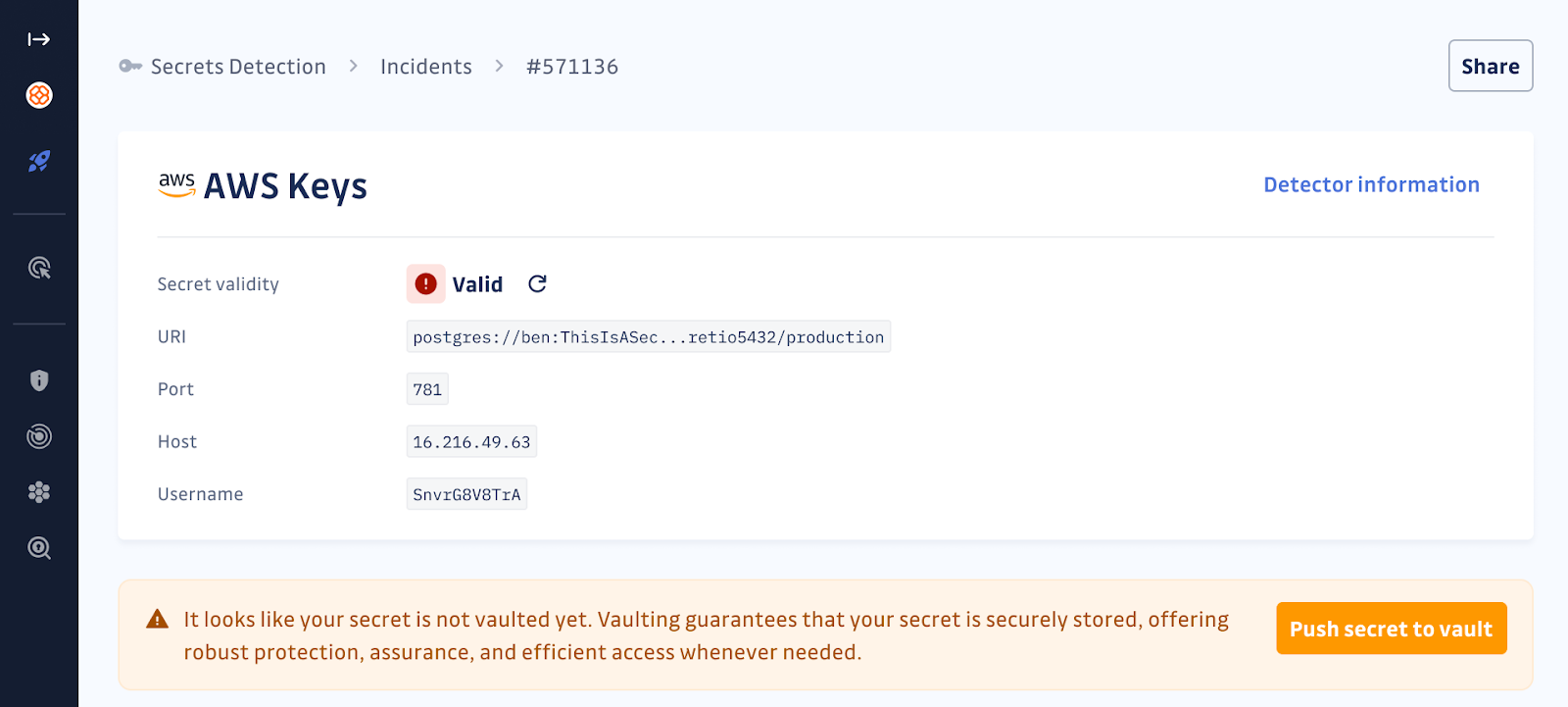
API密钥、密码和令牌等“秘密”是访问非人类身份的关键。泄露这些秘密可能导致攻击者入侵系统。修复泄露的平均时间为27天,因缺乏对秘密用途和影响的了解而延迟修复。通过明确所有权、提供决策依据和指导即时修复等方法,可加快 remediation 过程并减少风险。 2025-3-6 17:37:10 Author: securityboulevard.com(查看原文) 阅读量:1 收藏

Secrets—API keys, passwords, tokens—are the backstage passes to your non-human identities (NHIs). But when these secrets leak (and they do, regularly), it creates a window of opportunity for attackers. Secrets grant attackers the ability to move through systems, unlocking access to databases, cloud services, and critical applications.
We know that remediating leaked secrets can take time, with an average of 27 days. Especially for critical credentials, that’s nearly a month of exposed access—more than enough time for an attacker to wreak havoc. Why does it take so long?
Because most organizations often face difficulties in gaining the necessary context about their secrets. They often know a key is exposed, but they struggle to understand what it does, where it’s used, or what breaking it might cause.
This can lead to a difficult guessing game. Let’s explore how gaining a deeper understanding of your secrets, beyond just detection, can pave the way for a more secure digital environment.
Context is Everything
Finding a leaked secret is like discovering a loose key on the ground. Sure, you’ve found it—but what does it unlock? A harmless cupboard or the CEO’s office?
When a secret is exposed, teams need answers, fast:
- To what team or application does it belong?
- What does it access? (Cloud storage? Customer databases?)
- What actions can it perform? (Read-only? Full admin rights?)
- Who created it? (A junior dev? An automated CI/CD pipeline?)
- Where is it used? (Buried deep in legacy systems? Part of a critical service?)
Without this context, remediation is a shot in the dark. Rotate a secret without knowing its dependencies, and you risk breaking production. Delay remediation because you’re unsure of its impact, and you leave the door open for attackers.
We see that different teams face unique challenges that can slow down secrets remediation:
Security Teams: Often, they know the secret is exposed, but they may lack the deep application knowledge to fully understand what it does. They hesitate to remediate, as they want to avoid breaking a critical service.
IAM Admins: They manage permissions and identities at scale but have limited visibility into individual application secrets. That rogue API key in a microservice? Not on their radar.
DevOps: Their priority is uptime and deployment speed. Secrets rotation needs to happen without breaking CI/CD workflows. The process can be slowed down by a lack of clear documentation and understanding of necessary permissions.
Developers: They’re under pressure to ship features fast. Secrets management is just another item on an ever-growing list of security “to-dos.” If they don’t know a secret’s full impact, remediation can be delayed. And secrets managers lacking expiration alerts can contribute to the issue by prolonging secret lifespans.
The result?
Remediation efforts can sometimes be slower than desired.
Let's look at how we can address this together.
When teams have access to the right context, secrets remediation transforms from a stressful, high-risk process into a precise, strategic fix:
Minimized Potential Downtime: When you know exactly what a secret does, you can rotate or revoke it surgically, minimizing disruptions.
Faster Incident Response: The moment a secret is exposed, you already know its impact, so you can react immediately instead of spending days investigating.
Improved Collaboration: Security, DevOps, IAM, and developers all speak the same language when secrets have clear ownership and documentation.
Least Privilege, By Default: Understanding permissions helps you right-size access, so no secret grants more power than necessary. That way, if a secret does leak, the blast radius is minimal.
Audit & Compliance, Simplified: A clear inventory of secrets (and their permissions) makes audits painless.
- Establish Clear Ownership: Assign ownership for every secret. When a leak occurs, the responsible developer gets notified with context, not just a vague alert. This includes severity, location, time of exposure, and more.
- Make Informed Decisions: Provide your teams with the precise location of the secret, what it unlocks, and whether it's still active. This helps them understand the urgency and potential impact.
- Deliver Instant Remediation Guidance: Empower developers with clear, customized remediation steps, complete with accurate paths to invoke the secrets, directly within their workflow, such as in their ticketing system. This eliminates context switching and speeds up the process.
- Vault Your High-Value Secrets: Encourage developers to store high-value secrets in secure secrets managers, not directly in code. This allows for centralized control and auditing. And remember, even with secrets managers, leaks happen. We can help you identify the bad practices and track duplicates.
- Scan Proactively and Reactively: Implement both proactive scanning (during code commits) to prevent secrets from entering your codebase and reactive scanning to uncover existing leaks.
- Monitor the Secrets’ Lifecycle: Track when a secret was created, who used it, and if it's still active. This enables confident rotation and revocation. And speaking of rotation, our upcoming features will give you insights into the distribution of static and dynamic secrets, so you know exactly where to focus your efforts.
- Integrate Security into Workflows: Embed secrets scanning and remediation tools directly into developer workflows (IDEs, CI/CD pipelines, ticketing systems). This can make security smooth and efficient.
Imagine a single dashboard providing risk scores, hygiene trends, and actionable insights into your secrets exposure. That’s what next-gen secrets governance looks like.
The Bottom Line: Knowledge is Power
In the fight against secrets sprawl, detecting your secrets is half the battle. The more context you have, the faster and safer remediation becomes—cutting down the risk of breaches, downtime, and security debt.
It’s time to take a holistic approach to secrets security.
Want to be at the forefront of secrets security?
We’re looking for forward-thinking security teams to collaborate with us in shaping the future of secrets governance. Join us as a design partner and get early access to cutting-edge remediation features that make secrets security smooth, fast, and effortless.
*** This is a Security Bloggers Network syndicated blog from GitGuardian Blog - Take Control of Your Secrets Security authored by Soujanya Ain. Read the original post at: https://blog.gitguardian.com/why-understanding-your-secrets-is-the-key-to-faster-remediation/
如有侵权请联系:admin#unsafe.sh

